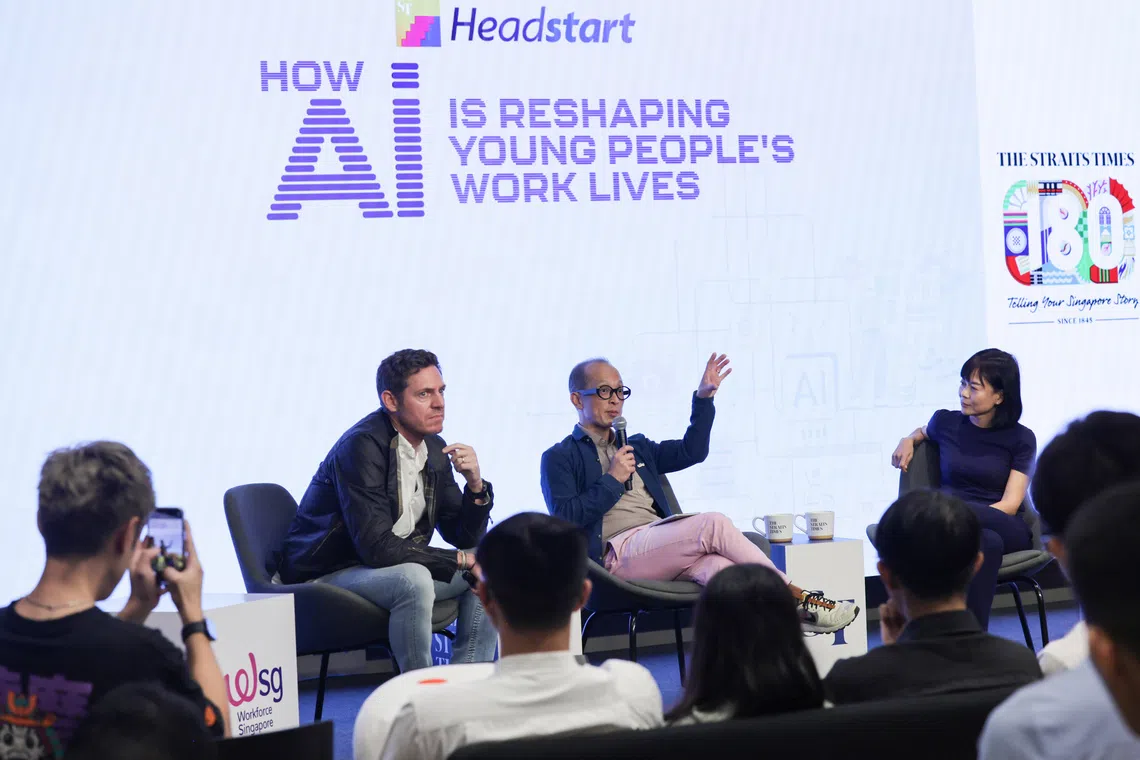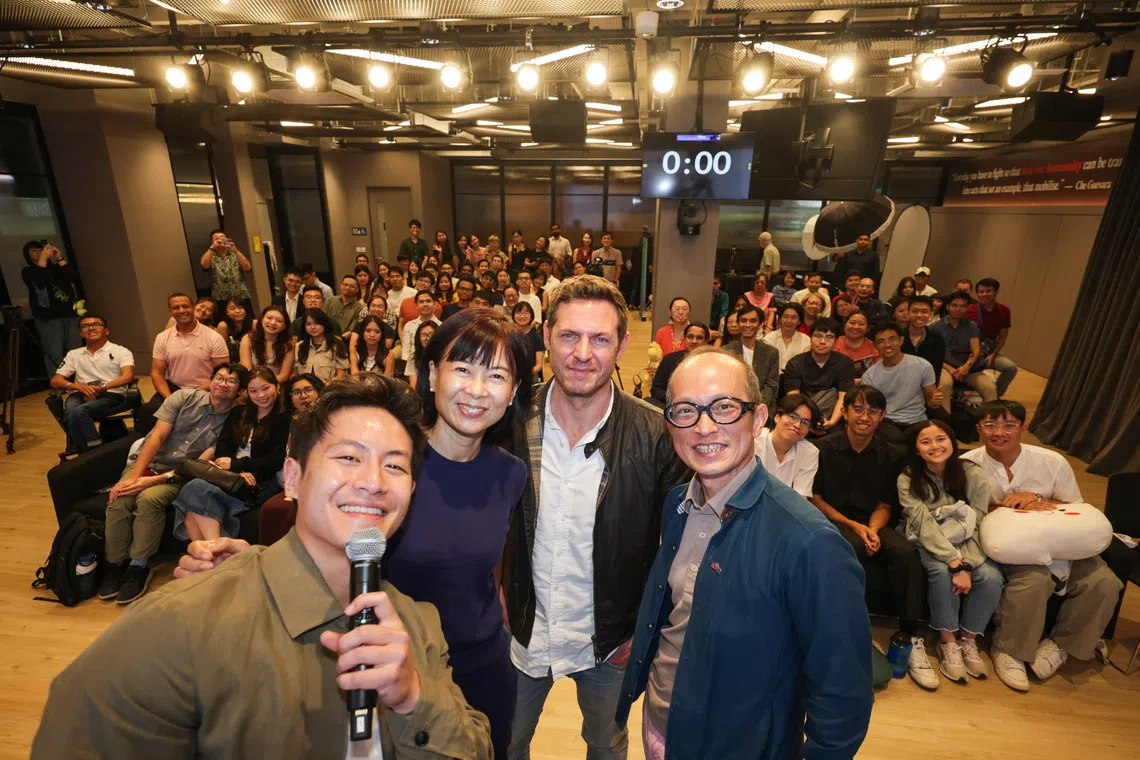AI’s impact on jobs still unclear, but job seekers should continue to upskill: Panel
Sign up now: Get tips on how to grow your career and money

(From left) Mr Lewis Garrad, partner and career business leader of Mercer Singapore, Mr Brandon Lee, assistant chief executive of transformation support group at Workforce Singapore and moderator Krist Boo at the panel discussion on Sept 6.
ST PHOTO: GIN TAY
SINGAPORE - The impact of artificial intelligence (AI) on jobs remains uncertain, but job seekers should continue upgrading their skills and stay open to different roles to remain competitive in a labour market shaped by global uncertainties.
This was the main thrust of a discussion with a panel of experts on Sept 6.
Mr Brandon Lee, assistant chief executive of Workforce Singapore’s transformation support group, and one of two panellists, told the event: “It is still not very clear yet, but there are still many things to look at before you condemn yourself.”
He noted that Singapore is grappling with a mix of challenges including tariffs, global conflicts, post-Covid-19 over-hiring and heavy corporate spending on the still-nascent field of AI.
But the economy has remained resilient
“Spend the time and effort to figure out what works in the AI space and use it for helping you to get on in your career,” said Mr Lee.
“But I think you also have to take a contrarian strategy, and this may mean doing very human things – it could be doing the jobs that nobody else wants to do, because that is what will build you an experience base that is differentiated from other people who may be pursuing everything and anything related to AI.”
The panel, which is part of a series of events in 2025 to commemorate The Straits Times’ 180th anniversary, was moderated by ST senior business correspondent Krist Boo. It was held in partnership with Workforce Singapore, in support of Career Health – a SkillsFuture initiative.
Panellist Lewis Garrad, partner and career business leader at consultancy firm Mercer Singapore, said companies are redeploying capital to other areas, which has slowed hiring. This trend is driven more by uncertainty over trade policies than by the impact of AI, he said.
He said that because companies see potential in AI, some may be slowing hiring for junior or entry-level roles to encourage existing staff to adopt AI tools and drive productivity. But he noted there is little evidence so far that AI has translated into real productivity gains.
“What will be very interesting is to see how AI reconfigures work and flows through to economic impact... In the history of things, this kind of technological innovation produces more jobs than fewer,” said Mr Garrad.
He added that job seekers should stay open-minded about the types of skills they can develop, and that there are three qualities they should have: competence, likeability and drive.
“If you are smart, likeable and willing to do the difficult work, you tend to do well – such people almost always have jobs,” he said.
Mr Lee said job seekers could also consider entrepreneurship to gain experience early.
“Once you start, you build experience and make decisions – including wrong ones – that help you develop better judgment and, hopefully, make better decisions in the future,” he said.
“When AI automates the less critical tasks, and companies need people with more experience and judgment, then you would have given yourself a head start in building that competency and reservoir of experience.”
Participants at the event said that while AI can boost organisational productivity, a human touch remains essential.

(Front from left) Money FM presenter Dan Koh, ST senior business correspondent Krist Boo, partner and career business leader of Mercer Singapore Lewis Garrad and assistant chief executive of transformation support group at Workforce Singapore Brandon Lee in a group photo with the attendees at the ST Headstart x WSG event.
ST PHOTO: GIN TAY
Mr Raj Gohar, 34, founder of tech firm MetaNextGen, said human interaction remains crucial.
“AI can do the job, but it cannot create the human connection. What I prefer is a person who can deliver results quickly, and that’s what matters,” he said.
Ms Nadine Sng, 20, a philosophy, politics and economics undergraduate at the University of Warwick, said that while AI will transform the workplace, it is still not cause for concern.
“I think it will augment the way I work, but not significantly change my prospects,” she said.
“As long as you have a good grounding in your skills and a clear sense of direction, there will be plenty of opportunities,” she added.



